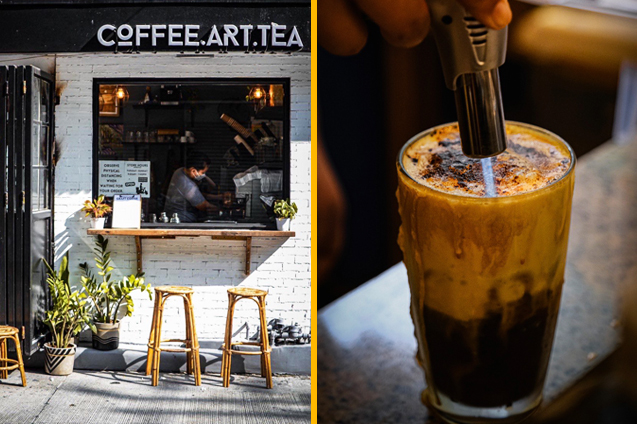Nearly two years into the COVID-19 pandemic, consumers have developed paradoxical longings.
As much as they want to be isolated and safe, they want to be among friends and be adventurous too. In the middle of these yearnings, growing in popularity is what I’ll call the bike-coffee run: You agree to bike around with your friends, stop somewhere for coffee, and safely wend your way back home. All your longings fulfilled.
This has created a surge of interest in coffee-serving establishments whose business models step away from simply making good coffee—the third wave sort or otherwise—and toward being accessible, safe, and accommodating to crowds of bikers.
In my chat with Hanzel Joy Babas, co-owner of Poblacion’s Coffee Artea with consultant Kalel Demetrio and cousin Jay Ebora, she illuminates the murky waters of starting a business in one of Makati’s lost bar crawl destinations and talks about running an 18-square-meter coffee shop that attributes 60 percent of its revenue to bikers.
The concept of a small space
The first time I biked by Coffee Artea, I whispered “cute” into a headwind. A tiny, warmly lit square in a typically grungy Poblacion, the shop looked like the solace of which we’ve been sorely deprived.
Babas, whose food and beverage career spans service and restaurant management, tells us that the design is pointedly deliberate.
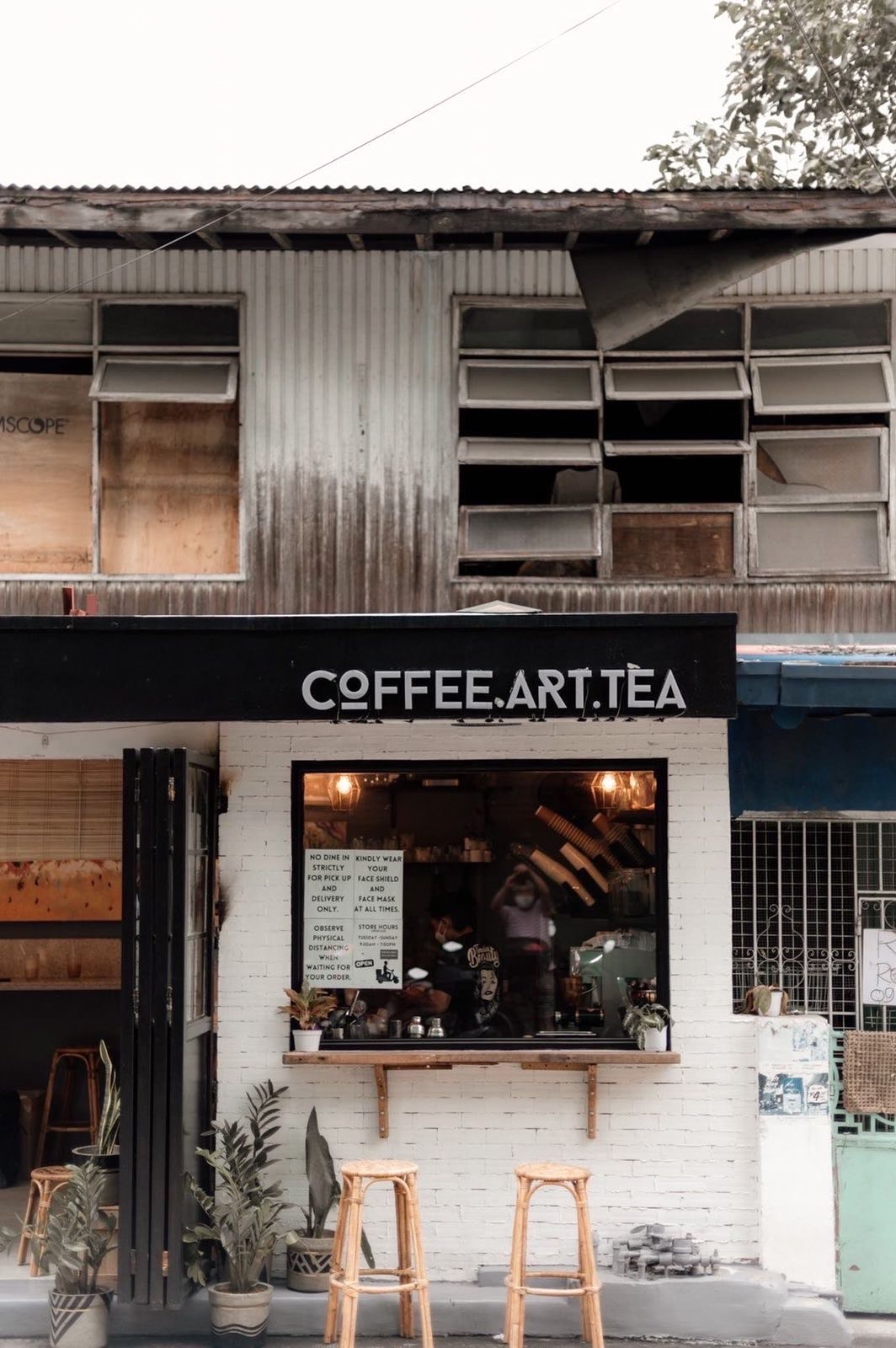
Reflecting on the benefits of operating in a small space, she notes: “Less manpower, easy to operate and maintain, plus we are considered al fresco.” The doors of the shop remain open throughout the day and there isn’t an air conditioner in sight.
Nosing into the establishment whose doors have been open since June 2021, there are art pieces on the walls—a show of the ownership’s support for local artists that also give Coffee Artea the second part of its name.
Also on display are locally sourced beans from Mt. Apo, Gingoog in Misamis Oriental, Atok in Benguet, Cavite, Batangas, Sultan Kudarat, and Sagada. The place glows gently with soft whites accented by wooden stools and green plants. There are stickers on the windows—some of them local bicycle-ware brands.
Reflecting on the benefits of operating in a small space, Hanzel Joy Babas notes: “Less manpower, easy to operate and maintain, plus we are considered al fresco.” The doors of the shop remain open throughout the day and there isn’t an air conditioner in sight.
In terms of the shop’s design, Babas says, “We got the idea from the famous streets and tourist destinations of Bali, Thailand, and Japan.” She adds that these are the sorts of cafes that shock you with their sudden appearance. As if you’re pondering around some village, slowly growing bored until you are surprised by a sudden waft of woody-scented air and a cute coffee shop in sight. “Poblacion is really a perfect spot for that.”
Attracting the right consumers
At any given time, restrictions permit Coffee Artea to house 10 customers—four inside and six outside. This small number is one of the cited pain points of owning a petite space in a pandemic. Nonetheless, the team serves about 30 persons on a weekday and 50 persons on a weekend.
While a large portion of this crowd is bikers, Babas says that the remaining customer segment is filled by coffee hoppers and those within the neighborhood.
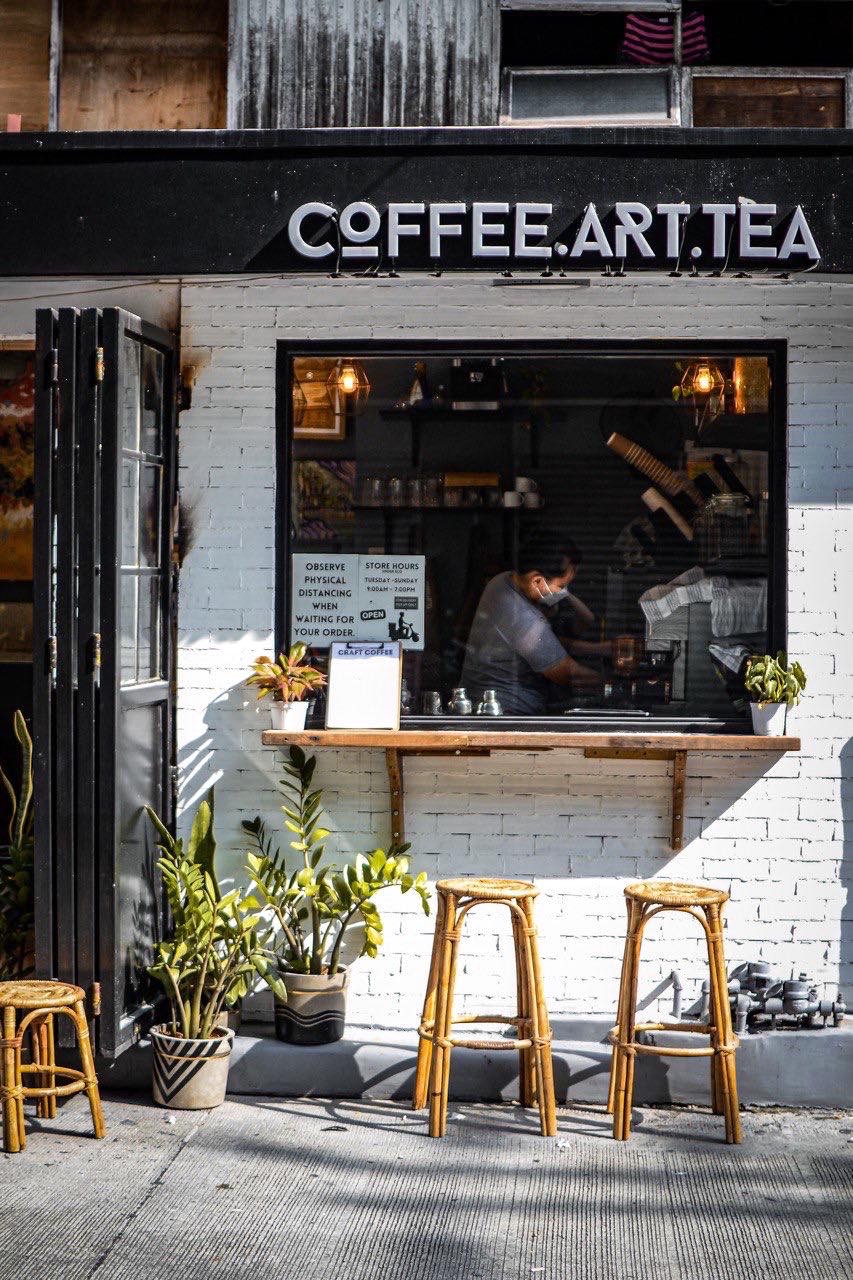
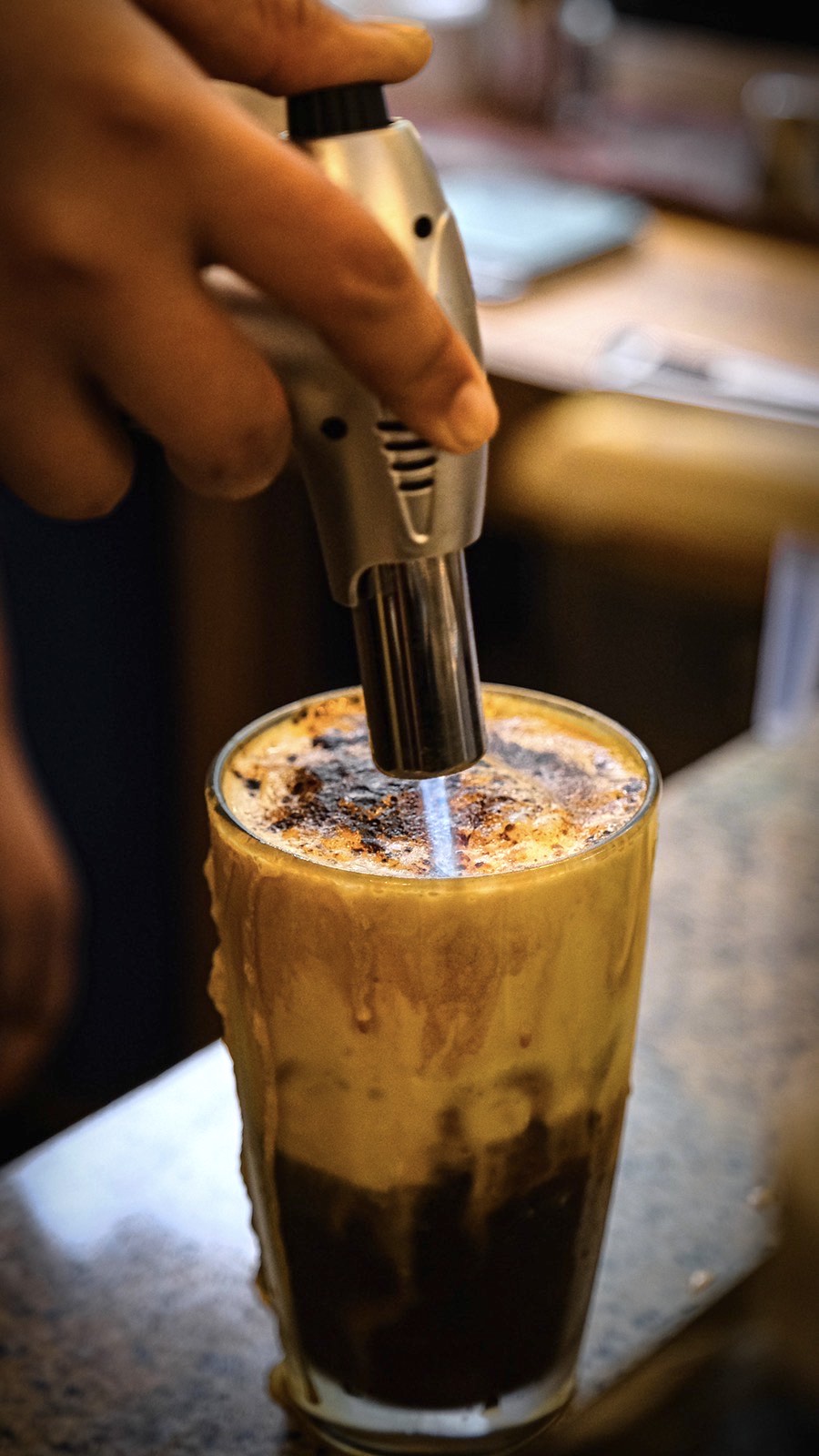
Regardless of the demographics, Babas identifies consumer value in the quality of drinks Coffee Artea serves, the al fresco setup, and the advocacy behind the brand, which promotes local produce and art.
Demetrio, who Babas refers to as the master of flavor combinations, is responsible for the first value, having created their bestselling blends on offer—Horchata Manchado, Leche Brûlée Latte, and Local Cacao Bicerin—all of which remain in tune with a brand promoting local quality. The also popular Ube Keso Espeziale meanwhile is one of Babas’ own creations.
Kalel Demetrio, who Babas refers to as the master of flavor combinations, is responsible for the quality of drinks, having created their bestselling blends on offer—Horchata Manchado, Leche Brûlée Latte, and Local Cacao Bicerin—all of which remain in tune with a brand promoting local quality. The also popular Ube Keso Espeziale meanwhile is one of Hanzel Joy Babas’ own creations.
As an occasional member of the aforementioned 60 percent of Coffee Artea’s customer base, drinks to cool down make up a strategic portion of a coffee shop menu targeted at the growing number of biking enthusiasts around Metro Manila.
Getting off the ground
The pandemic has squeezed the bottom lines generated by food businesses on two ends: The customers are fewer and supply-side inflation has increased too. While time will tell if the inflation is transitory, there appears to be hope in the customer comeback story.
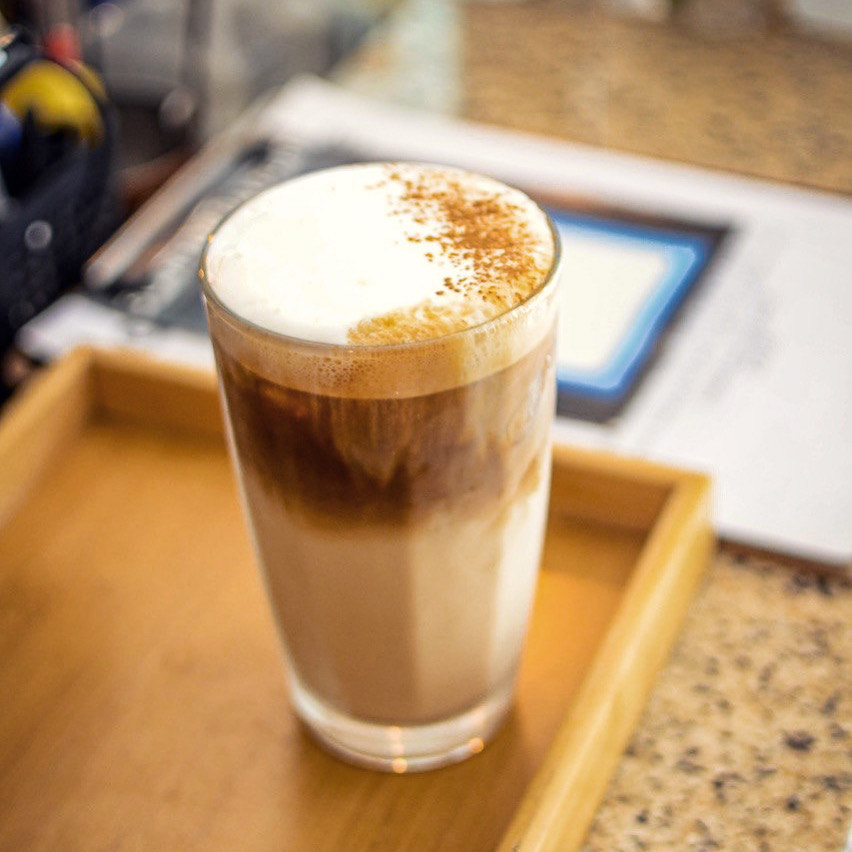
“[People are slowly returning],” Babas says. “[They] really love the Poblacion neighborhood and come here now to grab coffee from us or to dine.”
Setting up a food business is not without risk though, as lockdowns remain a lingering question and beautifying even a small space takes a solid chunk of capital. On the amount it would take to get a cafe business up and running, Babas gives us “seven digits at least,” but notions that this would all depend on the concept and rental fee.
Beyond the bean
Life in a pandemic creates new needs in customers as they too expand their interests. The team behind Coffee Artea provides a blueprint for a cafe model that thrives on the bike-coffee run clientele by veering into creating a consistent experience in a small, safe space.
And in that little box in the heart of a Poblacion slowly coming back to life, there’s some hope that customers are returning—and a lot of them are on bicycles.





